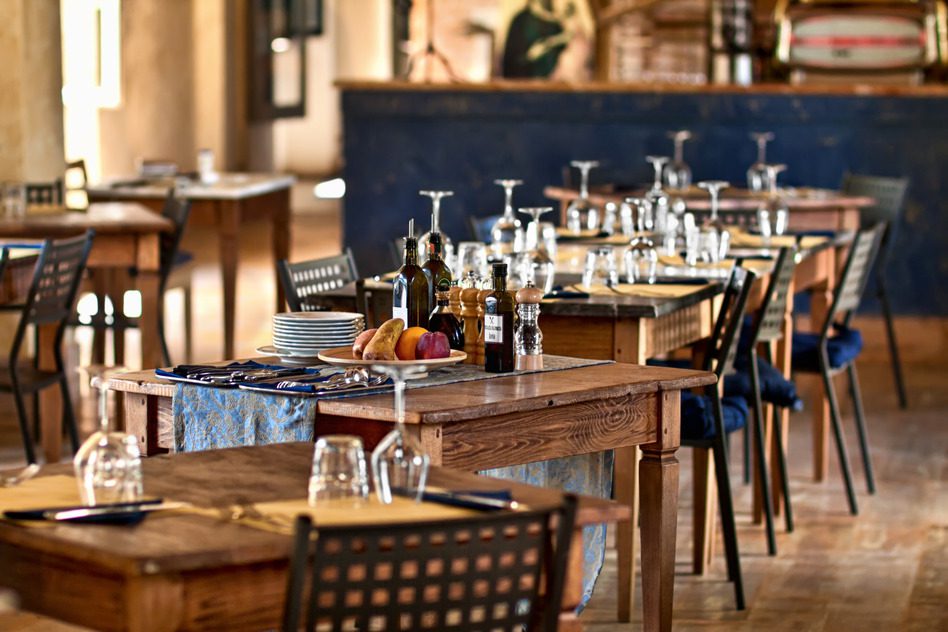
You always dreamed of owning a restaurant in a trendy part of New York or New Jersey. Maybe that dream has even taken you to a beachside spot overlooking the Long Island Sound. You finally made it happen. You have a great location, an impressive menu and the town is all abuzz about your fine establishment.
But opening a restaurant can get expensive, especially in New York or New Jersey. There are so many unexpected twists and turns, and at the end of the project you find yourself knee deep in additional expenses. So when it comes to purchasing restaurant insurance coverage, you go for a bare-bones policy just to get you by for a few months until you recoup some expenses.
Afterall, what can happen in the first few months?
Your restaurant is located in a well-maintained building, it has a sprinkler system and you will be around to monitor things.
The fact is, having the right restaurant insurance coverage is as vital to your business as having fresh food, the proper wine selection and positive reviews.
You probably heard of Murphy’s Law – If anything can go wrong, it will. This most certainly applies to the restaurant business. There’s a lot of risk involved on a daily basis. Some risks are preventable (or can at least be minimized), some are avoidable and some are completely unforeseeable.
Here are the top 13 you need to consider.
1. Food Contamination or Spoilage
Food safety is a major cause of concern for the restaurant business. Food poisoning is the most frequently reported restaurant injury according to the Centers for Disease Control (CDC).
A power outage, mechanical failure or other event can cause food spoilage. The food needs to be discarded to eliminate any possibility of food poisoning to restaurant patrons, taking profits right out of your pocket.
Food contamination/spoilage coverage will cover the replacement cost of spoiled food. Most policies include this coverage, but you should confirm the limit in your restaurant insurance policy to ensure it is sufficient based on your specific needs.
2. On-The-Job Injury or Illness
It is very important to have a documented safety program in place and to train your employees regularly on on-the-job safety. But the reality is, that doesn’t always prevent injury or illness.
As a result, most states require companies with employees to provide workers’ compensation insurance. Workers compensation insurance provides benefits to your eligible employees in the event of a job related injury or illness. Maintaining this coverage at all times is critical, otherwise you can be penalized for each day coverage was not maintained, as well as for any benefits an employee would have been eligible for if they became injured or ill on-the-job.
3. Employee Lawsuits
On average, it’s estimated that three out of five businesses will be sued by their employees. Restaurants, just like any other business, are vulnerable from the pre-hire process to reduction in workforce, and everywhere in between. Claims can stem from just about anything, including someone taking a “joke” the wrong way and being offended.
Employment practices liability insurance (EPLI) insurance is a standalone policy that protects your restaurant business against discrimination, wrongful termination, sexual harassment and other employment related allegations.
Typically, an employment practices liability insurance policy will cover your restaurant business as well as your directors and officers. Third party coverage is an added option, usually accomplished via a policy endorsement, and addresses claims made by customers or vendors against you from acts committed by employees.
4. Equipment Breakdown
Equipment such as freezers, stoves, dishwashers, air conditioning and computers are vital when running a restaurant. If a power surge or mechanical failure causes an equipment breakdown, your business can experience expensive repairs and lost income.
Maintaining equipment breakdown insurance will get your business up and running again without suffering financial setbacks. Check your policy to see if you are covered for costs and labor to repair or replace damaged equipment, and for costs to replace perishable stock.
5. Business Interruption
When the unexpected happens, such as a fire, flood or gas explosion, most insurance policies include coverage for the income you cannot collect.
BUT what if one of your key suppliers experiences an event causing them to not be able to supply your restaurant with what you need to keep running?
Make sure you have business interruption insurance and check your policy to make sure your policy includes contingent business interruption coverage to protect your restaurant business against the loss of potential earnings due to the inability of a key vendor to provide the supplies you need.
6. Not Factoring in Major Renovations/Improvements
You spent a lot of time, resources and money doing some major remodeling and kitchen improvements. But did you remember to contact your insurance agent to discuss any necessary updates to your restaurant insurance policy?
Most restaurant owners remember to insure their contents (such as tables and chairs), but do not factor in the cost for the improvements they have made to their restaurant over time.
If you have done or are considering a renovation to your restaurant, factor the cost of those renovations into the building limit (if you own the building) or contents limit (if you lease).
7. Flooding
If you own a restaurant in New York or New Jersey, you know flooding is a real concern. Superstorm Sandy has taught us that flooding damage can have a huge impact on every business, even those not located near a body of water.
Flood insurance is typically NOT included in a property policy, but can generally be added on by endorsement as long as the property is not located in a high-risk flood zone. If your property is in a high-risk flood zone, you will need to obtain a standalone policy. In either case, it’s important to have coverage.
While you’re at it, make sure your contents would be insured at “replacement cost value” rather than at the depreciated amount called “actual cost value”.
8. Sign Coverage
Exterior signs associated with your restaurant business are vulnerable to fire, vandalism and weather. Most property policies offer a sublimit of coverage for signs, but it might not be enough to recover costs in case of damage or loss.
Evaluate your sign exposures and determine if your existing property policy provides sufficient coverage. If not, increase the policy limit as necessary.
9. Data Breach
It seems that every few months or so, we hear about a major data breach perpetrated by someone(s) often located in a far away place. Organizations like Target, Home Depot, Michaels, JP Morgan and even the IRS have been targeted and suffered massive data breach despite their attempts to prevent such events.
If large organizations with big pockets are vulnerable, what does that mean for your restaurant?
Take our advice. It CAN happen to you. Areas of exposure include your website, POS system, internet connected computers, laptops, and social media accounts such as Facebook.
Experiencing a data breach is often not a question of if but when. Securing a cyber liability insurance policy can offer you coverage for expenses associated with compliance regarding data breach notification laws, securing legal counsel to advise on incident response, credit monitoring services and paying for regulatory defense and penalties arising from privacy law violations.
10. Auto Liability
If your restaurant offers food delivery service, whether the drivers are using company owned vehicles or their own, you can be named in a lawsuit as a result of an injury or damage caused by the driver while making a delivery for your restaurant.
A commercial auto policy should be maintained if the vehicles are owned by the company. If employees are using their own vehicles, then hired and non-owned auto liability insurance should be maintained. Both will defend you if you are named in a lawsuit as a result of an employee getting into an accident while making a delivery for you.
11. Employee Theft
There are two things your restaurant most likely always has on hand – food and money. And although you trust your restaurant employees, there have been many cases in which restaurant employees have run scams to pocket money or to steal food to take home or give away to friends and family members.
it may not seem likely with the great team you have built, but it’s a real possibility in the restaurant business.
Make sure you have insurance coverage for employee theft. This type of coverage can help compensate you for some of your financial losses, if they were to occur.
12. Valet Parking
Providing a valet service at your restaurant, especially if it’s located on the busy streets of New York, offers great convenience for your guests. But damaging a vehicle, property or causing injury is a very real risk associated with that service.
Obtain a general liability policy to protect your restaurant business from lawsuits by a third party. Be certain that a garage keepers legal liability policy is also in effect with adequate limits to cover any physical damage to your guest’s vehicle or other vehicles on site. If you are using an independent valet service, obtain a certificate of insurance to verify they have the proper coverage with adequate limits. Also make sure that your business is named as an additional insured under their policy.
13. Liquor Liability
Any establishment that sells, serves or assists in the purchase or use of liquor is open to a liability claim as a consequence of someone getting inebriated to the extent that injuries or property damage result. Your restaurant is not exempt.
If you are in the business of selling or serving alcohol, it is critical that you protect yourself from potential financial losses by being covered by a liquor liability insurance policy. Having the right policy in place could help cover your legal costs, court fees and any civil or criminal damages stemming from an incident involving liquor.
The restaurant business is unique. Take the time to speak with an insurance agent who understands the inherent risks restaurant owners face and is able to offer appropriate insurance solutions to cover those risks.

